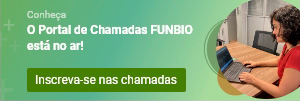Through education for decent work for young people and adolescents, and the development and dissemination of eco-efficient technologies, this project’s main objective is to preserve and strengthen Artisanal Naval Construction (ANC) of fishing vessels in the Lakes Region, helping to increase its social, economic and environmental sustainability. The construction of fishing vessels in Brazil is a vast and rich historical and cultural heritage, and is also an essential link in the productive chain of small-scale fishing, in addition to being, in itself, a source of work and income in traditional communities. However, ANC is under pressure due to the difficulty in renewing the workforce, and the consequent transmission of its many knowledges; the scarcity and rising cost of its main raw material, native timber; the pressure surrounding the environmental sustainability of its manufacturing techniques and processes; and the difficulty in incorporating new technologies, whether arising from norms and regulations or from fisherfolk’s demands.
Such difficulties, both human and environmental, are addressed here by bringing craftsmen, naval masters, and their respective knowledge to the center of the process, through three components: the exchange of knowledge, its registration, and its enrichment.
The exchange of knowledge takes place through the networking of naval masters, in 2 municipalities in the Lakes Region, who will train a group of apprentices (with at least 30% female apprentices and 50% black), paid, over 15 months, with the support of a network of universities, technicians and environmental educators.
In addition to learning in the work environment, apprentices, masters and other artisans, together with researchers and technicians, will exchange knowledge on techniques and topics selected together, which will cover: work safety; solidarity economy; tools, materials and techniques; standards and technical norms; dignified work; new technologies; environmental licensing; among others.
The recording of knowledge will take place through documentation and audiovisual co-production during learning; and by a self-evaluation at the end of the project, of its successes, errors and replicability.
The enrichment of knowledge will take place through the identification, acquisition and installation of machines, equipment, work safety and infrastructure according to the demands of each artisanal shipyard supported.
This knowledge network is based on PEA-PESCARTE’s expertise in the fishing production chain, and will train young people, recognizing and strengthening artisans, developing knowledge and generating methods that can be continued in the region, and replicated in other fishing territories in the country.
StatusIn Progress |
BiomeMarine and Coastal |


